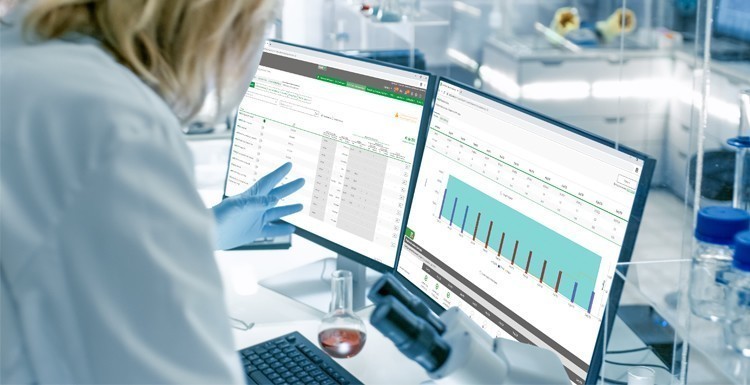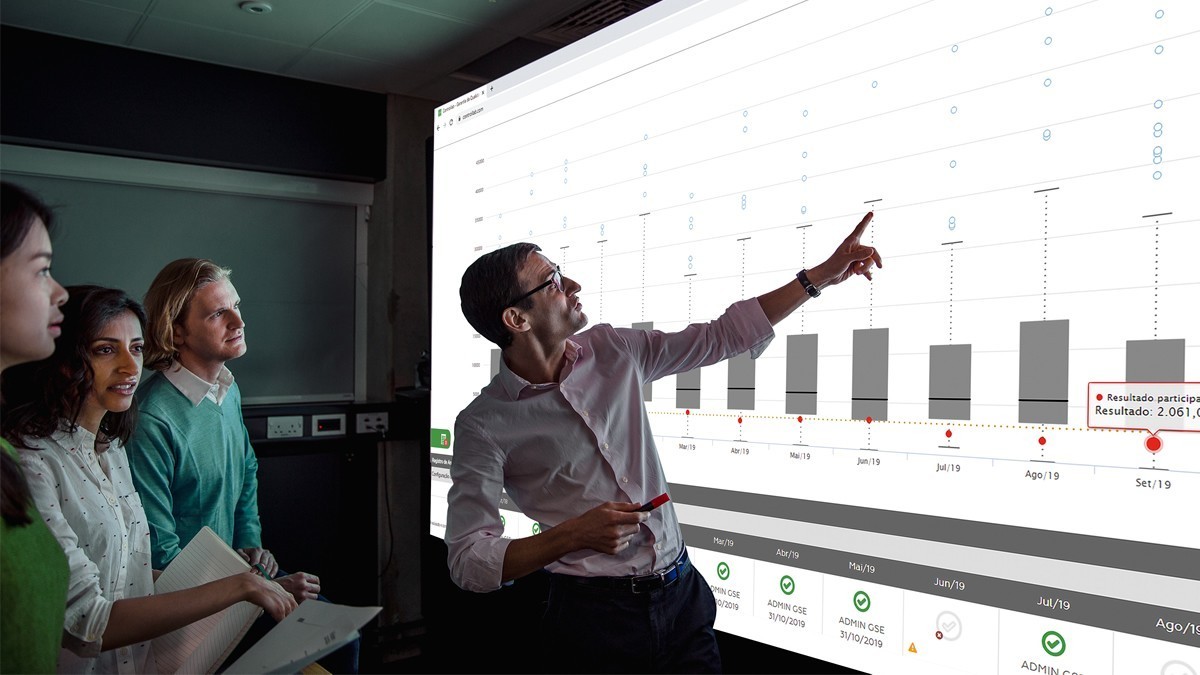The role of the tool during the health crisis was the theme at the 1st Virtual Congress of SBPC/ML.
Test, test, test. That was the recommendation of the World Health Organization (WHO) to countries in March 2020 to fight the new coronavirus. Laboratories were challenged – amid changes in routines, adaptations of teams and care for their staff – to quickly introduce detection for SARS-CoV2, without neglecting the demand for tests to control other existing diseases.
Faced with the unquestionable need to provide reliable reports at that time, managers needed to protect the reputation of their institutions and not allow quality to be impacted by the changes resulting from the Covid-19 pandemic.
How to ensure continuity of processes, meet the needs of patients, care for employees and avoid significant losses in the organization’s cash? To assist in these responses, the measurement and knowledge of the weaknesses and strengths of the laboratory are determining factors for decisions.
The role of the Benchmarking and Laboratory Indicator Program (PBIL) at this time of health crisis was one of the subjects discussed at the 1st Virtual Congress of the Brazilian Society of Clinical Pathology and Laboratory Medicine (SBPC/ML), which took place between September 25 and October 2.
PBIL, created in 2006 in an association between Controllab and SBPC/ML, is a management tool that quantifies the laboratory’s performance and compares it with the market. Its scope was increased in 2016 – today there are about 150 indicators – and it received adjustments that allowed the comparison of data also internationally.

Organized processes are even more important in times of crisis, says Dr. Larissa Welter, technical director at Hemos Laboratório Médico, in Blumenau (SC), one of the PBIL participants. “Management with indicators contributes precisely to conscious decision making. When you know your data, you are not ‘myopic’. And he still manages to verify the effectiveness of the decisions it took when compared to the market“, she argues, who saw seven of the 10 units of her laboratory close in Santa Catarina overnight due to restrictive circulation measures in the city, which also affected private laboratories such as Hemos.
The challenges that arose in March required quick action. The priorities started to be to ensure the company’s cashier , ensure the safety and health of employees and maintain the operation for customers. “Everything was done in a short space of time and needed to be conducted in an innovative way”. The laboratory focused on environmental safety, valuing professionals, prudently resuming strategic actions and controlling expenses to avoid waste. “It is not a game of chance: organized processes, with adequate information, provide agility in decisions”. In her presentation at the virtual congress, Dr. Larissa Welter showed that investment in Benchmarking over time was essential for the organization’s strategies in the face of the need for quick and effective actions.
Knowing the processes and how competitive they are compared to other organizations is not just a survival requirement for private institutions, since quality and growth are necessary attributes for public organizations as well. With the authority of those who are in charge of the Quality Center of the Central Laboratory Division of the Hospital das Clínicas of the USP Medical School, a reference in serving Covid-19 in São Paulo, Dr. Maria Elizabete Mendes presented the institution’s indicators virtual congress, highlighting that laboratory performance is crucial to provide patients with safe, effective and efficient care. “Benchmarking is a precious tool, especially in times of pandemic”, she concluded.

Not all laboratories participating in the PBIL were able to report their data to obtain Benchmarking, precisely in a fundamental period of evaluation of the effectiveness of emergency strategies. Luiza Bottino, from Controllab’s Service Management, noted a drop in the responses of about 15% in the first months of the pandemic. Having reduced staff during this period may have impacted the process. The task, however, can become much simpler when some steps are automated – such as standardized data collection.
Since 2018, Controllab has been working intensively with companies that develop laboratory information systems (LIS) to integrate their clients’ management software into the indicator program. When the laboratory system is integrated with PBIL, data is automatically transmitted to the Controllab tool. “Certainly, it is a facilitator for managers because it frees up this labor that is busy with manual collection to be used in another more effective task for the process: the critical analysis of the data generated by the program”.
Controllab has already approved the integration of PBIL with three developers of laboratory systems – Karyon, Pixeon and Confidentia, that last one from Portugal. More recently, Matrix has also started a partnership with the company. “They are more than partner companies”, points out Luiza. “The developers are also contributing to improvements in the programs. And we are moving towards integrating more companies ”.
Before the pandemic, recalls Luiza, the scenario was already challenging for laboratories: a competitive market, with a client that increasingly demands quality, speed in delivery and efficiency of results. When the crisis came, the relevance of the diagnosis was even more evident. “Before, making a decision without concrete data was difficult. With the pandemic, this got worse, it became a threat to the survival of the laboratory”.
More information about PBIL and other Controllab solutions can be found on the website, by e-mail contato@controllab.com or by phone and WhatsApp +55 (21) 97901-0310 and +55 (21) 98036-1592.

